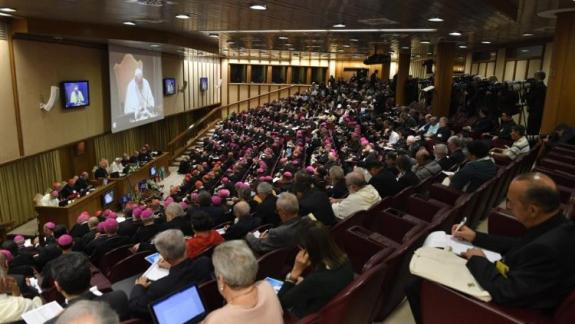Well, no. But a sister who spoke yesterday made it sound that way.
This presentation raised some eyebrows yesterday during the Amazon Synod — and sparked a lot of debate on social media about just what this “confession” entails. According to this explanation in Vatican Media, the circumstances are exceptional — involving people who are sick or near death — but they help show the challenges faced by Catholics in remote areas who can only see a priest two or three times a year:
The first briefing of the Synod hears about the experience of women religious in villages where priests visit very rarely. We cannot give absolution, they say, but we think of the comfort we bring that person.
“We are present everywhere and we do what a woman can do by virtue of her Baptism: we accompany the indigenous people, and when priests cannot be present, we perform baptisms. If someone wants to get married, we are present and we witnesses to the love of the couple. We have often had to listen to confessions, but we have not given absolution. In the depth of our hearts, though, we have said that with the humility with which this man or woman approached us because of illness, or because they were close to death – we believe God the Father intervenes there.”
These are the simple and direct words spoken by Sister Alba Teresa Cediel Castillo, of the Missionary Sisters of Mary Immaculate and of St. Catherine of Siena, who lives in Colombia among the indigenous communities. She describes the situation and the difficulties experienced in villages in the Amazon, and the fact that sometimes there are couples who swear allegiance to each other in a marriage pact in the presence of the women religious when there is no priest. Then there are people at the end of their lives, or in difficult situations, who cannot make their confessions to a priest, because there isn’t one. These people too turn to the women religious and confide in them the sins they have committed. Obviously, the sisters cannot give absolution: they know they cannot perform the Sacrament of Reconciliation, and the people who trust them know it as well. But they can listen and they can pray. The sisters know they cannot celebrate weddings either, but they can attend them.













